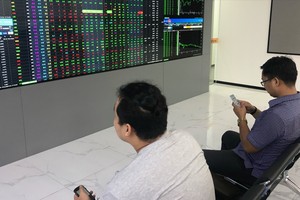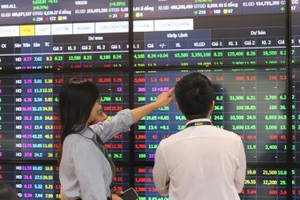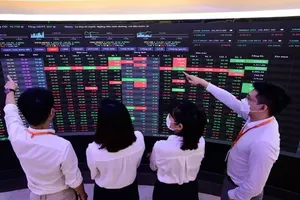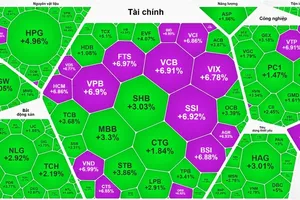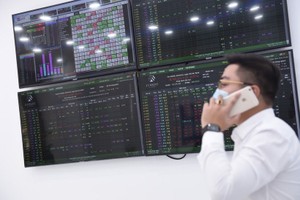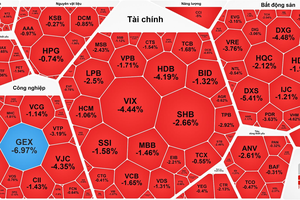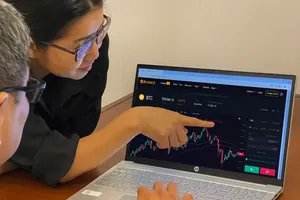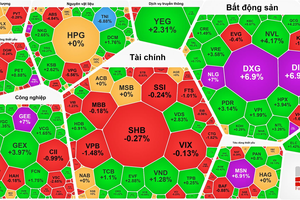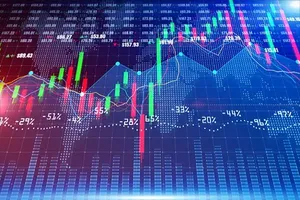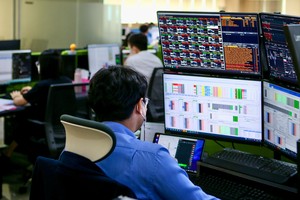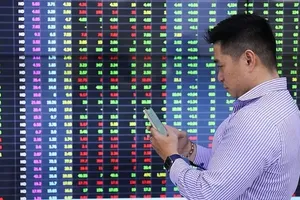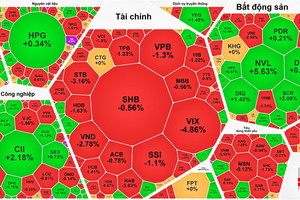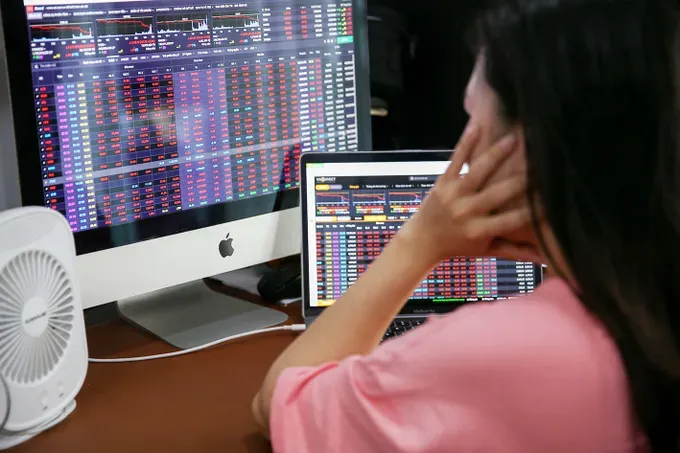
Torrent of record-high liquidity
The story of Phan Le, a 36-year-old marketing employee, is emblematic of a broader trend. “I used to have VND400 million (US$16,000) in a savings account earning 5.5 percent per year”, he shared. “But after seeing friends achieve attractive returns in the stock market, I decided to test the waters. I bought into bank stocks, and in just four months, my investment has generated a significant profit.”
Le is one of many new investors flocking to the market. This “stock market wave” has attracted a diverse range of participants. Data from the Vietnam Securities Depository and Clearing Corporation (VSDC) reveals that in July 2024, domestic investors, primarily individuals, opened a record 226,153 new securities accounts. This brought the total number of accounts to nearly 10.5 million, equivalent to 10.4 percent of the population, and surpassed the government’s target for 2025.
July 2025 marked an impressive growth period, with the VN-Index surging past the 1,500-point threshold to set a new peak. The rally was underpinned by strong demand and abundant liquidity, with the average daily trading value reaching nearly VND35 trillion ( $1.4 billion), a 67-percent increase from the previous month. After a long period of caution, foreign investors also returned, with net purchases of nearly VND7.8 trillion ($312 million) on the Ho Chi Minh Stock Exchange (HOSE).
This momentum has accelerated in August 2025. The VN-Index has continued its record-setting climb, adding over 150 points to reach a new high of 1,688 on August 21. Daily trading values on HOSE have consistently ranged from VND45 trillion to over VND60 trillion ($1.8 billion to $2.4 billion). The session on August 5 saw an all-time record trading value of VND78.2 trillion ($3.13 billion).
Thanks to this massive influx of capital, the market demonstrated remarkable resilience. Despite a shock from a US tariff policy in April 2025, it recovered swiftly and has since gained over 500 points from its April low. Concurrently, margin lending has surged to a new record. By the end of Q2 2025, outstanding margin loans at securities firms exceeded VND304 trillion ($12.16 billion), a 22-percent increase since the start of the year.
According to Dr Dinh The Hien and VFA Group, a primary driver is the strong money supply. In June 2025 alone, credit grew by over 3 percent, injecting roughly VND600 trillion ($24 billion) into the economy. Furthermore, the keen anticipation of a market upgrade by FTSE Russell in September is playing a crucial role in attracting capital.
Securities-related credit soars
Data from the State Bank of Vietnam (SBV) indicates that as of the end of July 2025, total credit in the economy had grown by approximately 10 percent. Notably, credit extended to the securities sector grew at a faster pace, accounting for about 1.5 percent of total outstanding loans, estimated at nearly VND257 trillion ($10.28 billion).
Financial reports from securities firms confirm a sharp increase in bank borrowings during the first half of 2025. For instance, by the end of June 2025, SSI’s short-term bank debt had surged by nearly 35 percent to over VND61.2 trillion ($2.45 billion). Other major firms like HSC, VNDirect, and TCBS also reported significant increases in their borrowings. This trend is particularly pronounced among securities firms that have affiliations with banks.
Nguyen Ha My, an analyst at VIS Rating, finds this understandable. “With traditional lending facing intense competition and thinning margins, it’s natural for banks to expand into the securities business to improve profitability”, she explained. “However, to mitigate credit losses, it is crucial that affiliated banks and securities firms establish stringent criteria for new clients and enhance collateral management.”
Analysts at SSI Research also noted that a surge in M&A activity in the sector suggests financial institutions are preparing long-term investment ecosystems. They advised that as banks expand into new areas like digital assets and securities, they must rapidly upgrade their internal control and compliance systems.
According to SBV Deputy Governor Pham Thanh Ha, the central bank does not restrict credit to real estate or securities but will monitor it closely to direct capital toward healthy segments and prevent speculation. “The SBV will coordinate with the State Securities Commission and the Ministry of Construction to monitor capital flows into these two sectors, ensuring alignment between monetary, fiscal, and asset market policies”, the Deputy Governor affirmed.
Director Bui Van Huy of Investment Research Department, FIDT commented that while market liquidity is at a record high, the quality of this cash flow is positive. It is evenly distributed among many stock groups rather than being concentrated in speculative stocks.
This “smart money” is targeting stocks with strong fundamentals, reflecting a more cautious and selective investor sentiment. The current rally is more stable and sustainable than previous waves, thanks to low interest rates, abundant bank liquidity, economic recovery, and the return of both retail and institutional investors. This provides a foundation for the market to maintain its long-term upward trend.
Vice Chairman Huynh Minh Tuan of APG Securities also shared that the recent launch of the KRX trading system by HOSE is a turning point, paving the way for modern products like T+0 settlement, short selling, and a central counterparty (CCP) clearing house.
He expects liquidity could double to $4-5 billion per session. With a forward P/E ratio of around 12.5x and rising corporate ROE, the market is in an attractive valuation zone. He is very optimistic about Vietnam’s economy, with infrastructure as a key growth driver. As infrastructure develops, GDP will rise, and the stock market will reflect that expectation.
